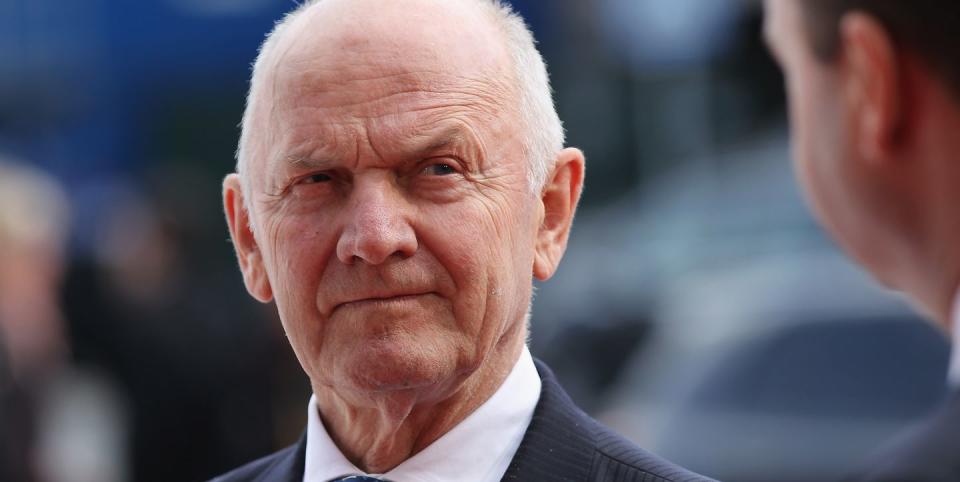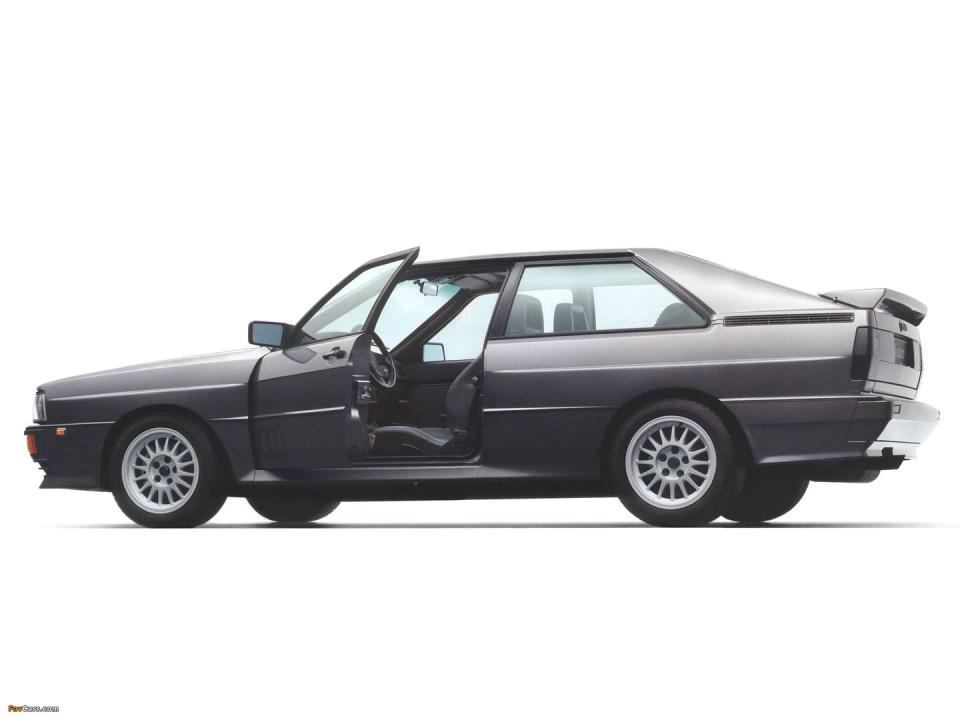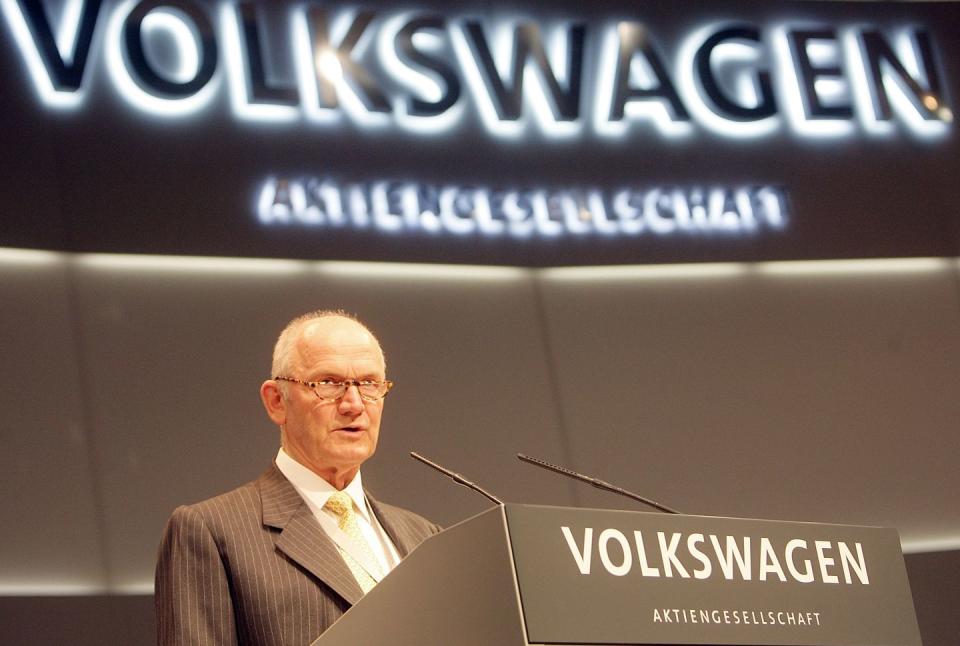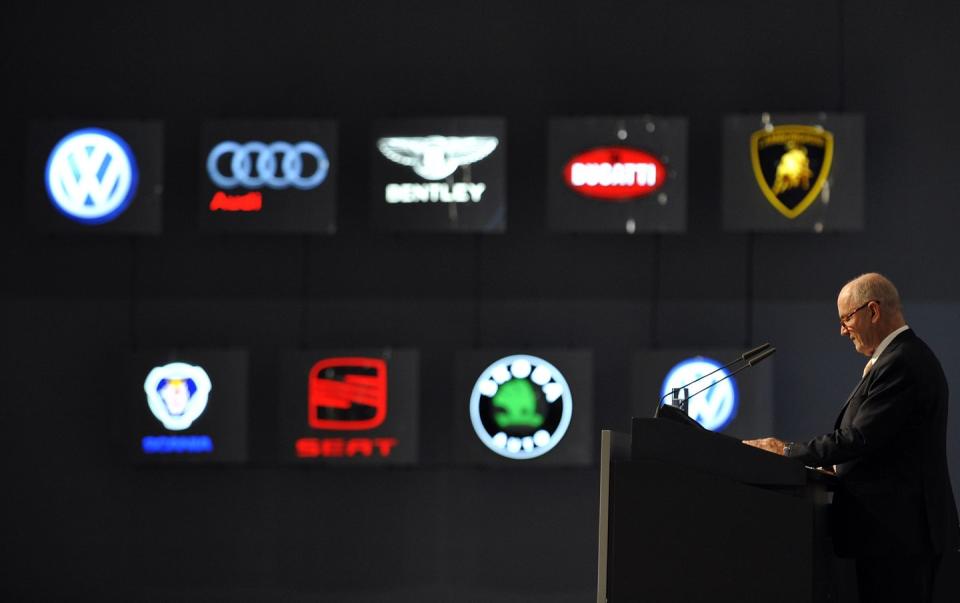The Complicated Legacy of Ferdinand Piech

Ferdinand Piech is gone. The phrase "larger than life" is frequently used to describe the lives of remarkable individuals, and the term is over-worn. But it's highly applicable in the case of this hugely successful, exceptionally gifted man. He was a man whose strong will permitted him to achieve the near-impossible; a man whose sense of exceptionalism led him to violate rules of society and business with equal impunity. "My way, or get out of my life," was Piech's attitude. And it worked.
Shown above, Piech in 2012.
I first met Ferdinand when he was chief engineer of Audi, while I was with Ford of Europe. He had just led the creation of the Audi Quattro, the world's first high-performance all-wheel drive coupe. It became an instant sensation. It was at the Frankfurt auto show; I approached him at the Audi stand where he was pointing out the finer aspects of his creation on a full-size cutaway.
I'll never forget his face. When we were introduced, he smiled ... or was it a grin, or even a sardonic smirk? It was broad enough, but with his head bowed forward at a slight angle, the dark, intense eyes fairly glowing from underneath semi-arched brows, there was something diabolically menacing about it.

Engineering excellence was in Piech's DNA. He was the grandson of the original Dr. Porsche, who created—for Adolf Hitler—the original Volkswagen Beetle. Piech inherited his grandfather's prodigious energy and ambition, which broached no compromises. Piech had his own goals, and a sufficiently crafty mind, downright devious when necessary, that ensured he always got what he wanted.
Piech surrounded himself with a force-field of his own construction, compromised in equal parts of respect and fear. The aura that radiated from this slender, medium-height man was impossible to miss. One sensed the presence of greatness, but it was not benevolent. Looking at his cold, frozen smile was a reminder that threats and punishment were only a wave of the hand or a blink of an eye away.

When Piech became CEO of the Volkswagen Group in 1993, his elevation was greeted with mixed feelings. There was joy on the part of those who were tired of semi-effective leadership that administered the situation rather than striving for radical change. Others, knowing Piech's dark side, braced themselves for one-man rule and total lack of tolerance.
During his inaugural week as boss of VW, Piech called all of the company's Vice Presidents, 30 or so in total, into his office. Succinctly explaining his priorities, he ended the brief meeting by telling the group that, by next week, few if any of them would still be working for VW.
And he followed through. I'm sure many of the fired deserved it. But I'm equally sure that many were highly capable and had served the company well. No matter: Piech had no time to sift through it all. His philosophy allowed only one strategy: dump everyone and start over with his own trusted lieutenants. Send the signal that this leader will fire without qualm or mercy if it serves his purpose.
Even the German government treaded lightly when it came to Piech. In 1993, the notorious Inaki Lopez left his position as head of global purchasing at General Motors to join VW. Lopez was briefly lured back to GM, then abruptly changed his mind and bolted to Piech, allegedly bringing with him hundreds of confidential GM documents. When the case came to court in 1996, German federal prosecutors often sounded more like VW's defense attorneys than independent arbiters of justice. GM Europe's then-president simply could not get the pertinent authorities to seize, subpoena, issue search warrants or perform any other acts that could have led to discovery of the stolen documents and charges against the perpetrators. The events were increasingly viewed as "GM is harassing VW, Germany's national pride, out of spite after losing a key executive." Wisely, GM stopped believing in the ultimate triumph of justice and threw in the towel.
There were other controversies. Competing German automakers may well have wondered how VW obtained labor-bench approval to move substantial production into the former Eastern Bloc, where wages were a fraction of those in Germany. Eventually, some of Piech's point-men were prosecuted for taking senior management and labor officials on top-drawer, luxurious vacations and brothel visits. In the US, such conduct usually result in jail time for all. Piech emerged with nary a blemish.
Then there's the VW diesel scandal, still fresh in all our minds. How could a global corporation possibly commit such a crass, willful criminal act? When asked at the time, I opined that it was a direct result of the corporate culture created and nurtured by Piech. The mantra, top to bottom, was, "you will get it done, and if you can't, you'll be replaced by someone who can." Piech and his colleagues were determined to use "clean diesel" as their way into American hearts and garages. But they were unwilling to include what they saw as crippling emissions-control equipment. Thus, the adoption of cheater software, which reliably showed legal emissions levels in testing, but went offline in real-world driving. How could sensible engineers, most of them honest, condone and conceal such a fraud? The answer lies in the atmosphere of fear and reprisal, hallmarks of any organization led by Piech.
Once, at an auto show, I congratulated Piech on the superb panel fits of his new cars. He told me, "you want this at Chrysler? Here's how it's done: call everyone who is part of body precision into your office. Tell them you want three-millimeter body gaps in six weeks, or they're all fired."
I told him this was, ahem, "culturally difficult" in the US. He replied, essentially, that I was too weak to get what I needed from my company. At the time, I was President and Chief Operating Officer of the Chrysler Corporation—but I'm sure Piech regarded me as just another nice, well-educated executive who couldn't get the job done.

Piech got the job done. He almost single-handedly took fledgling post-war Audi from a tiny, ill-known brand to one of the world's largest premium nameplates. When his effort to make VW the equivalent of Mercedes-Benz proved hopeless, he purchased Bentley and resurrected the iconic British brand. He acquired Lamborghini and made it into a real, serious competitor to Ferrari. He gave new life to the storied Bugatti nameplate—arguably an unneeded jewel in VW's crown, but an effective showpiece of extreme VW technology. Porsche, now under the control of VW after a very nasty proxy battle, has become a mainstream luxury brand and source of great profitability. Skoda, once the subject of anti-Communist jokes, has become the pride of the Czech Republic and enjoys a superb reputation throughout Europe.
Piech, applying all his energy, will, cunning, and often darker methods, built this empire, currently the second-largest, most diversified automobile company in the world. It could not have happened under anyone else's leadership.
For this, Ferdinand Piech will be remembered and admired. More than likely, he will not be "loved." But that was never one of his goals.
You Might Also Like

 Yahoo Autos
Yahoo Autos 